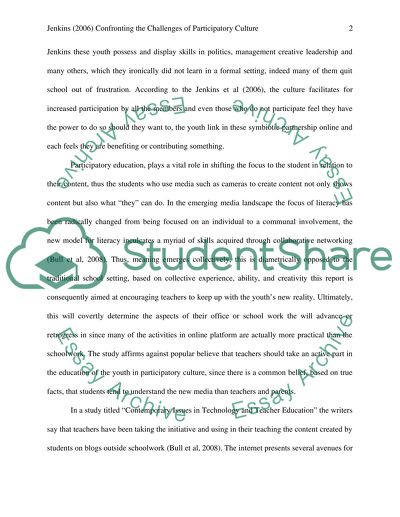Cite this document
(“Jenkins (2006) Confronting the challenges of participatory culture: Research Paper”, n.d.)
Retrieved from https://studentshare.org/miscellaneous/1615425-jenkins-2006-confronting-the-challenges-of-participatory-culture-media-education-for-the-21st-century
Retrieved from https://studentshare.org/miscellaneous/1615425-jenkins-2006-confronting-the-challenges-of-participatory-culture-media-education-for-the-21st-century
(Jenkins (2006) Confronting the Challenges of Participatory Culture: Research Paper)
https://studentshare.org/miscellaneous/1615425-jenkins-2006-confronting-the-challenges-of-participatory-culture-media-education-for-the-21st-century.
https://studentshare.org/miscellaneous/1615425-jenkins-2006-confronting-the-challenges-of-participatory-culture-media-education-for-the-21st-century.
“Jenkins (2006) Confronting the Challenges of Participatory Culture: Research Paper”, n.d. https://studentshare.org/miscellaneous/1615425-jenkins-2006-confronting-the-challenges-of-participatory-culture-media-education-for-the-21st-century.


